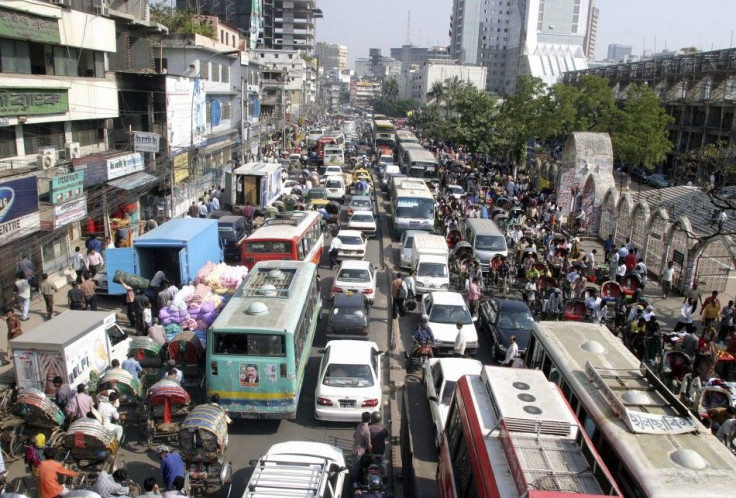Women Drivers May Make Bangladesh's Dangerous Roads Much Safer

The poor, densely-populated nation of Bangladesh suffers from one of the world's highest rates of traffic fatalities.
The World Health Organization estimates that about 20,000 Bangladeshis die annually on its congested roads and highways, while hundreds of thousands are injured, including innocent pedestrians.
In a particularly tragic case, last July 60 schoolchildren perised when their bus crashed in the southeastern part of the country.
In response to this crisis, Bangladeshi government officials are taking a novel step to reduce the carnage – they are encouraging more young women to drive automobiles, taxis and trucks, in a traditionally conservative Islamic society when men dominate the roads.
An all-female driving school has opened in the capital city of Dhaka, the Guardian newspaper reported,
Kobita Rani, a student at the school told the paper: "All I have ever been told is that I must get married and have children… Now, I am showing them all they were wrong."
Kobita conceded the obstacles she will face as a woman driver.
"We know we will be facing many problems on the roads, with men harassing and abusing us," she said.
"But for me it is worth it. I'll be helping my family and helping myself have a better life than my mother had. And I also believe we can make the roads safer and stop so many people dying needlessly."
Traffic accidents not only kill and injure untold thousands of people annually, but they also hurt the country's economy and threaten to exhaust its health care service.
The National Institute of Traumatology, Orthopaedics and Rehabilitation said about 20 percent of all injury-related admissions in Bangladesh hospitals are caused by traffic accidents. Also, about 15 percent disabilities are caused by these accidents.
According to reports, more than half of the surgical and trauma beds in Bangladeshi hospitals are occupied by traffic accident victims.
The economic loss arising from these incidents is equal to two percent of annual GDP, or about as much total foreign aid as the country receives in a year.
Professor Shamsul Hoque, Director of the Accident Research Institute of Bangladesh University of Engineering and Technology explaimed the problem to a Bengali blog,
"There is basically no enforcement [of road rules] in Bangladesh to speak of," he said. "There are simple and inexpensive things that could save many lives and make our roads safer. But they are not being done due to lack of political will."
Indeed, road accidents are the 11th biggest cause of death in Bangladesh.
"We need to de-testosterone our roads," said the driving school's director of road safety, Ahmed Nazmul Hossain. "Road deaths in Bangladesh are a constant dripping away of life, a haemorrhaging of people, mostly productive working people from our society. There is this crazy belief that getting to places quickly is more important than lives."
Hossain explained that women would make roads safer since they generally shun drugs and alcohol and follow the rules of the road.
Hossain also noted that many of his graduates will seek to drive professionally – in fact, the government has set aside 10 percent of such jobs to the fairer sex.
"We are going to be taking the government at its word," he said.
"It is still rare for women to learn to drive, let alone work as professional drivers, so the quota system has just been a nice piece of positive legislation that has never been tested. We are hoping to change that, and make our roads safer in the process."
© Copyright IBTimes 2025. All rights reserved.





















